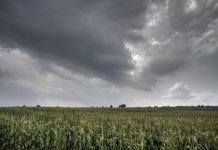The movement of sheep and cattle has been restricted in Norfolk and Suffolk following the confirmation of several cases of bluetongue disease, a serious viral infection that affects livestock
The Department for Environment, Food and Rural Affairs (Defra) has implemented a restricted zone in the region to mitigate the risk of the disease spreading further, the Guardian reported.
What is Bluetongue and how is it affecting our livestock?
Bluetongue, a disease primarily transmitted by biting midges, poses a significant threat to various types of livestock, including sheep, cattle, goats, deer, and camelids such as llamas and alpacas.
The virus can cause a range of symptoms, including a blue and swollen tongue, fever, reduced milk yield, and, in severe cases, death. While the disease does not affect humans or food safety, its impact on livestock can be devastating, leading to prolonged restrictions on animal movement and trade.
In response to the outbreak, Defra has confirmed five cases of infected premises in the region. These premises are now under strict restrictions, and the movement of susceptible animals is only permitted under license. Surveillance is underway to determine whether the virus is circulating among the local midge population, which would increase the risk of the disease spreading further.
Looking after live stock in affected areas
Livestock keepers in Norfolk and Suffolk are urged to remain vigilant and monitor their animals closely for signs of bluetongue. Sheep, in particular, are more likely to exhibit obvious clinical signs of infection, such as ulcers or sores in the mouth and nose, discharge from the eyes or nose, drooling, and swelling of the lips, tongue, head, and neck. Other symptoms may include red skin, fever, lameness, breathing difficulties, and, in pregnant animals, abortion or stillbirth.
Infected animals in the restricted zone must not be moved unless absolutely necessary, and farmers are being advised to take immediate action to prevent the disease from spreading to their herds. The situation is being closely monitored, and further measures may be implemented if necessary.
Bluetongue is classified as a notifiable disease, meaning that any suspicion of the virus must be reported to the Animal and Plant Health Agency (APHA) immediately.
Quick detection and reporting are crucial to controlling the outbreak and preventing it from spreading to other areas.
As the situation develops, livestock keepers are being advised to stay informed and adhere to all guidelines set by Defra and the APHA to protect their animals and prevent further cases of bluetongue in the region.










